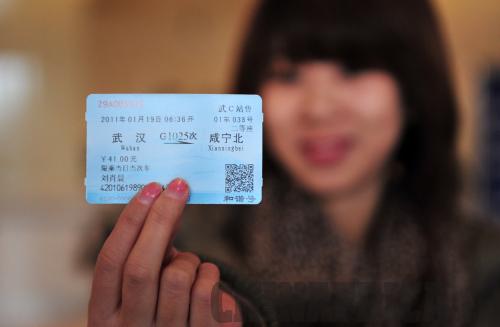|
 |
|
Real-name ticket |
Foreigners Included
Foreign employees in China will be entitled to the same social insurance benefits as Chinese nationals when the new Social Insurance Law goes into effect on July 1, 2011, according a senior official with the Ministry of Human Resources and Social Security.
Target groups include foreign workers employed by Chinese and overseas-funded enterprises, social groups, law firms and foundations that registered in China. The law also covers foreign workers assigned to China by overseas registered companies.
The law specifies that all employees have the right to basic endowment insurance, basic medical insurance, work injury insurance, unemployment and maternity insurance.
Statistics show that there were nearly 600,000 foreigners living in China in 2010. However, many of them are limited to having work injury insurance and basic medical insurance.
Officials also said the law is a major sign of the country's wider economic and social openness.
No Free Bags
China will expand its ban on giving out free plastic bags from supermarkets to bookstores and drugstores in order to reduce environmental pollution, according to a senior official with the National Development and Reform Commission (NDRC). However, the specific date of implementing the ban is not given.
China has prohibited shops from giving out free plastic bags and banned the production and usage of plastic bags thinner than 0.025 mm since June 1, 2008.
The ban reduced usage of 600,000 tons of plastic during the past three years, saving 3.6 million tons of petroleum, said the NDRC.
Rail Tickets ID
China's Ministry of Railways began to implement the real-name system for purchasing the tickets for high-speed railway trains (including D-trains, G-trains, and C-trains) on June 1, 2011. It is an attempt to make buying tickets more convenient and to foil scalpers.
Passengers are required to provide proof of personal identification when buying tickets. The recognized identification includes ID cards, student certificates, military service cards and passports.
Travelers who buy tickets through agents also have to show their ID. For those who forget or lose their ID, they can go to a special window where the local police bureau will issue a temporary ID card, with which they can buy tickets.
Electronic Payments
Legal status for third-party online payment is given to boost this sector's development in a more standard way after the People's Bank of China, the central bank, issued the first batch of electronic payment licenses to 27 qualified third-party online payment platforms, including Alipay, Tenpay and 99bill on May 26, 2011.
The deadline for third-party payment businesses to get the license is September 1, 2011. Those who failed to get the license have to stop doing business.
Third-party payment enterprises refer to those non-financial operators who work as the third party between buyers and sellers to provide payment settlement through Internet, telephones and mobile phones.
China has about 457 million netizens, the world's highest number, among whom 148 million were frequent online shoppers as of the end of 2010.
Online Mapping Allowed
Foreign companies are allowed to provide Internet mapping services only when in a joint venture, said the State Bureau of Surveying and Mapping on June 8, 2011.
According to the bureau, an amended regulation regarding overseas organizations and individuals offering online mapping services took effect on April 27, 2011. It states that for joint ventures with Internet mapping as their sole business, investment by foreign investors cannot exceed 50 percent of the total investment.
Problems are also emerging as the Internet mapping service market is booming, such as confidential geographic information being marked on maps, and maps showing no respect for China's territorial integrity, said the bureau. According to the regulation, to survey China's territory, overseas companies and individuals should either set up joint ventures, contractual joint ventures, or do one-off surveying with permission of relevant authorities. |